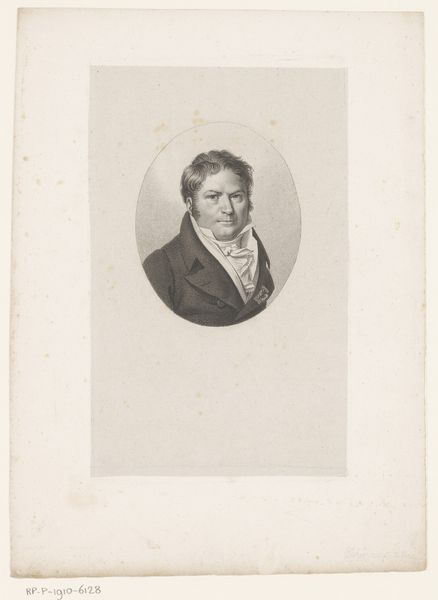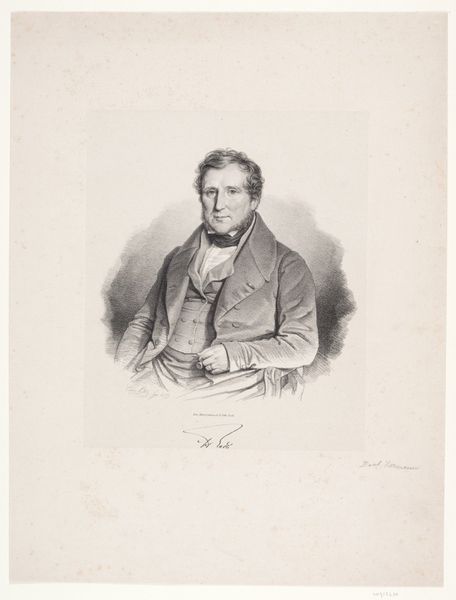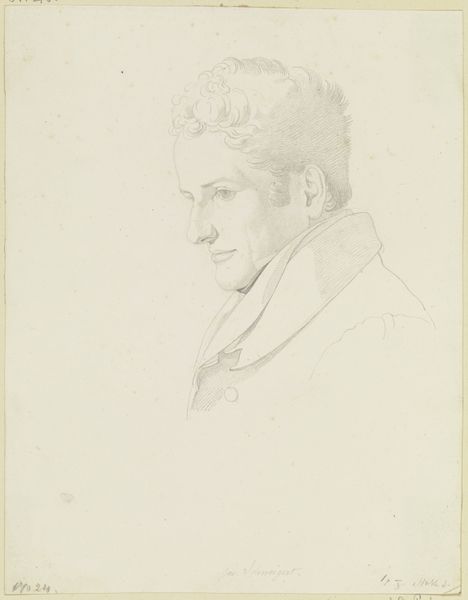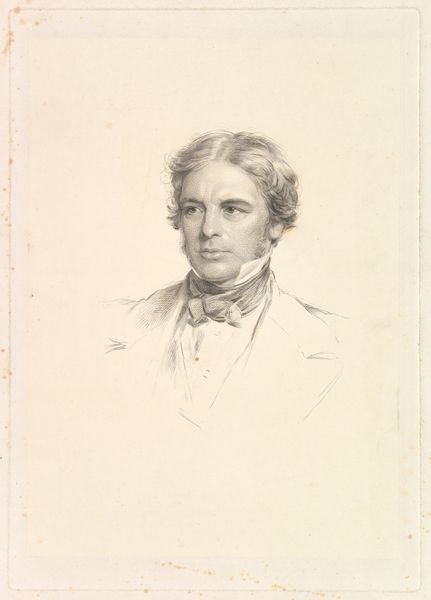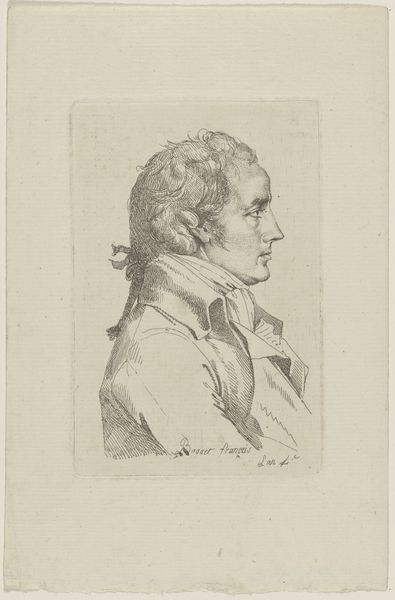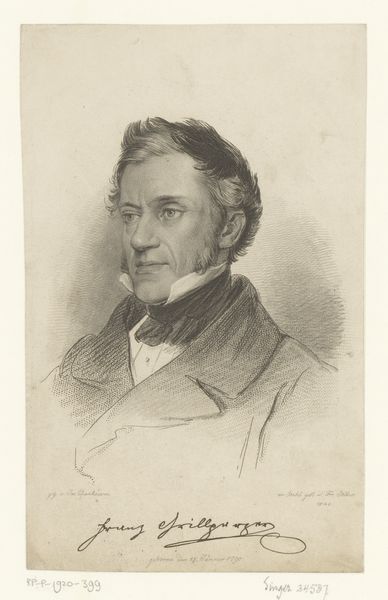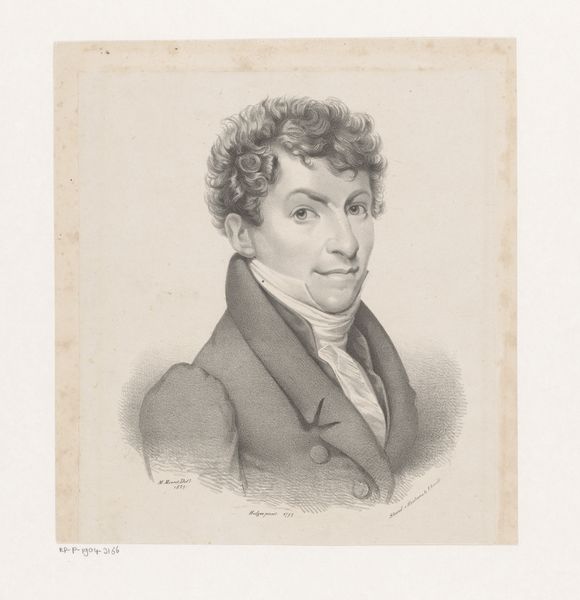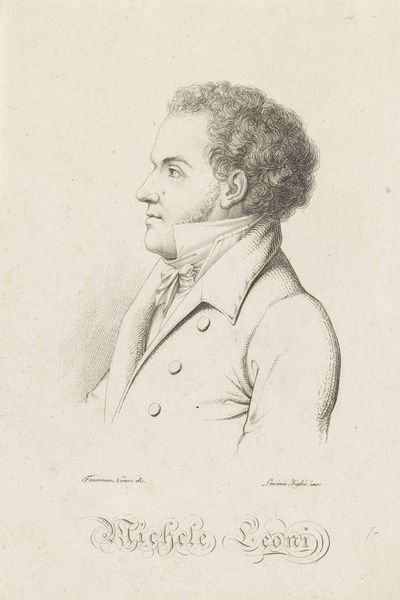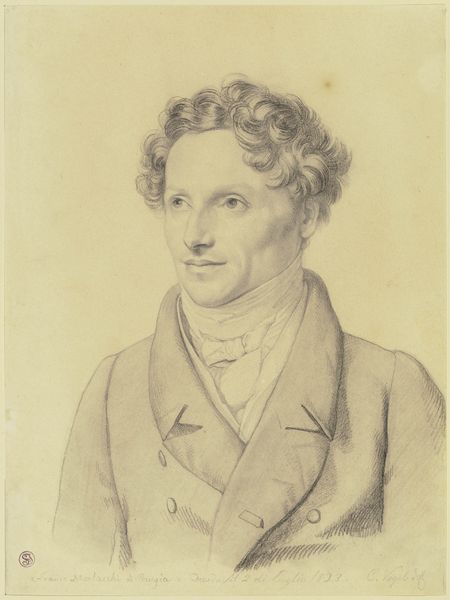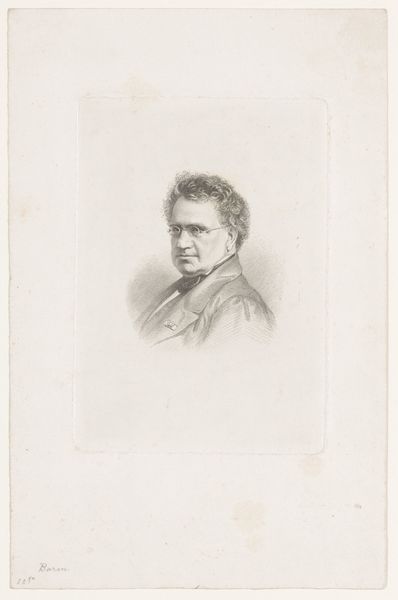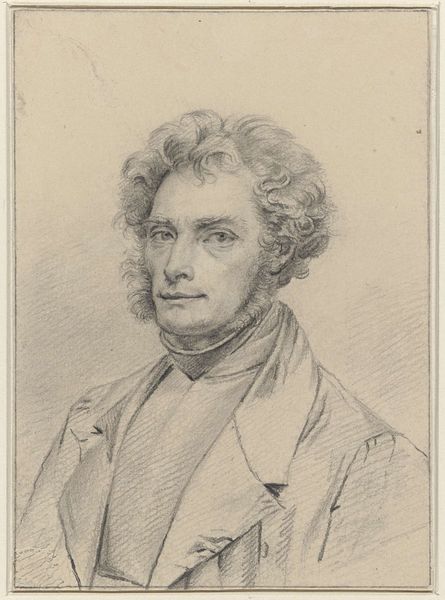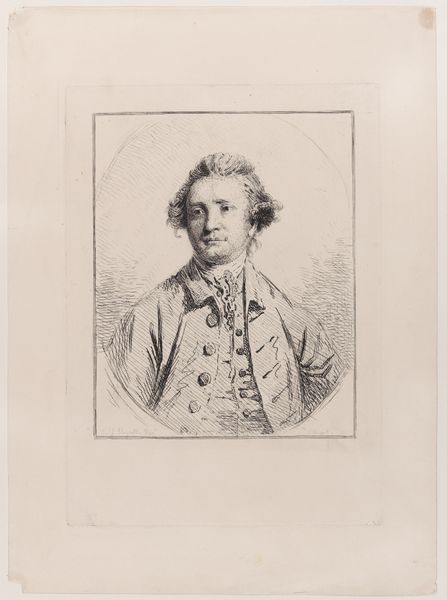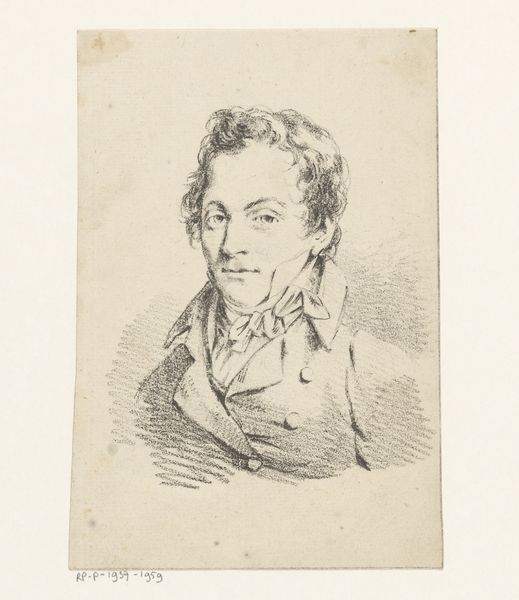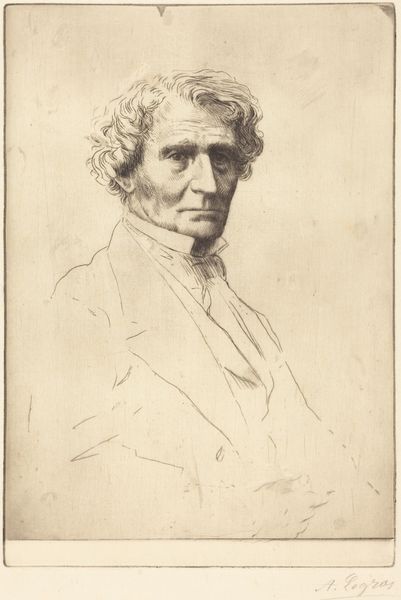
drawing, lithograph, print, paper, graphite
#
portrait
#
drawing
#
neoclacissism
#
lithograph
# print
#
charcoal drawing
#
paper
#
pencil drawing
#
graphite
#
portrait drawing
Dimensions: 106 × 185 mm (image); 208 × 242 mm (sheet)
Copyright: Public Domain
André Dutertre made this drawing of the engraver Baquoy with pen and brown ink in the late 18th or early 19th century. The ruffled cravat at his throat, seemingly simple, is a telling symbol. We see the cravat evolve from simple neck cloths, to elaborate displays of status. Consider the Elizabethan ruffs—symbols of rigid hierarchy. By Baquoy's time, cravats signified a move towards individuality. Yet, the act of adornment carries its own weight. It reflects our primal need for recognition. Think of tribal scarification, or royal regalia—all echo in Baquoy’s cravat. In this portrait, it evokes both personal identity and social role. The cravat, therefore, is not merely fabric; it’s a knot tying Baquoy to an evolving cultural narrative, revealing how symbols transform while retaining echoes of the past.
Comments
No comments
Be the first to comment and join the conversation on the ultimate creative platform.
